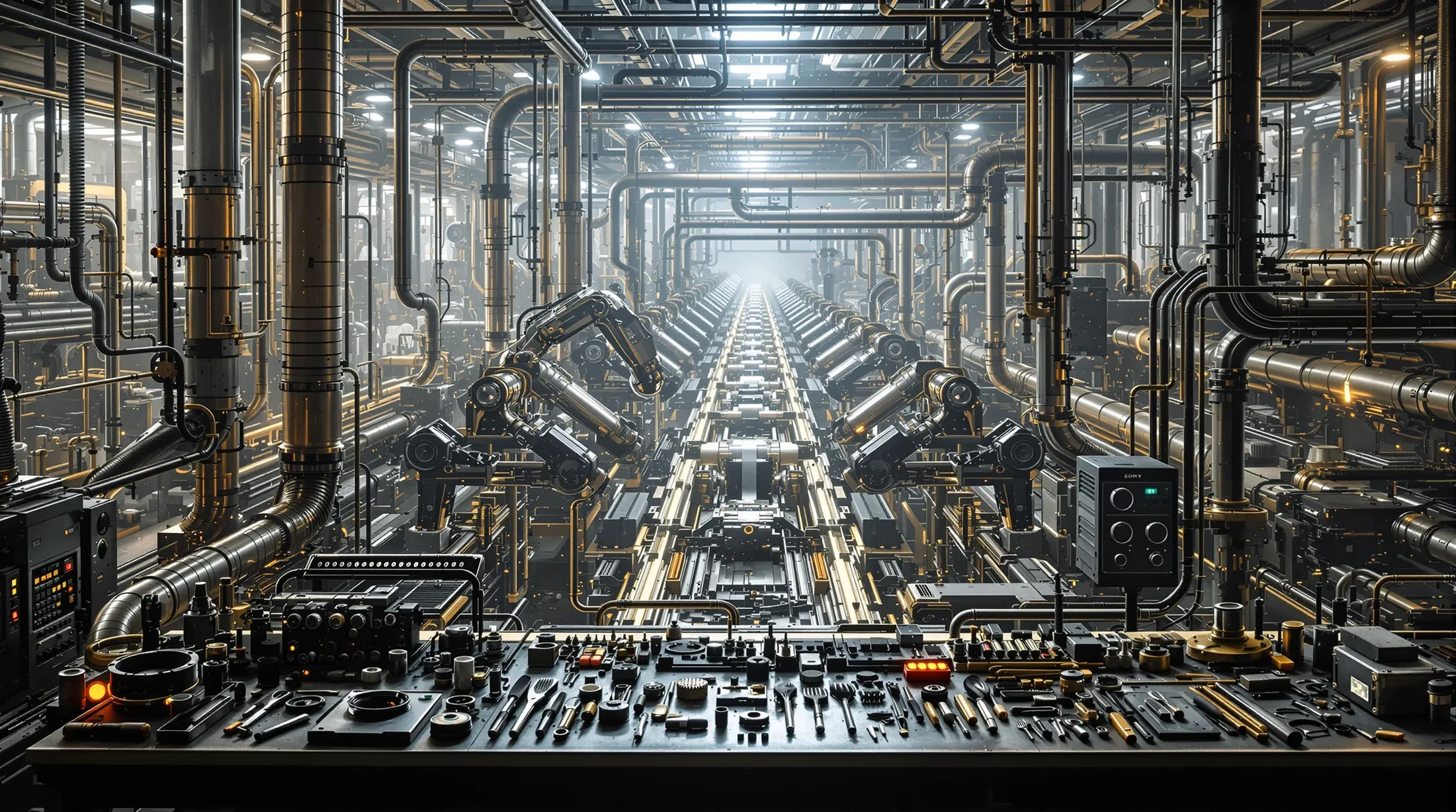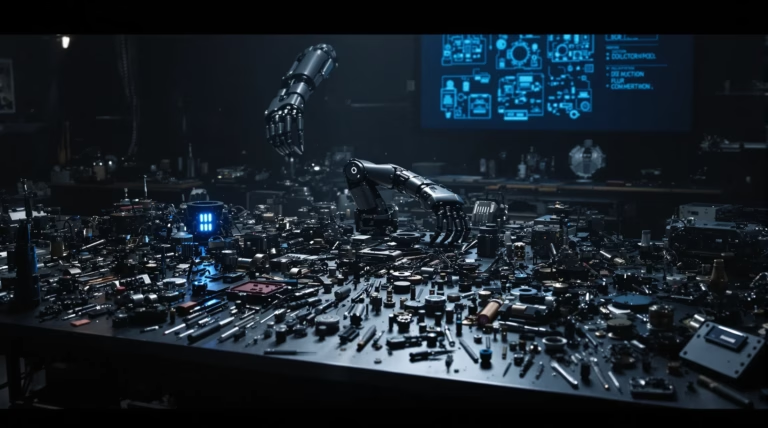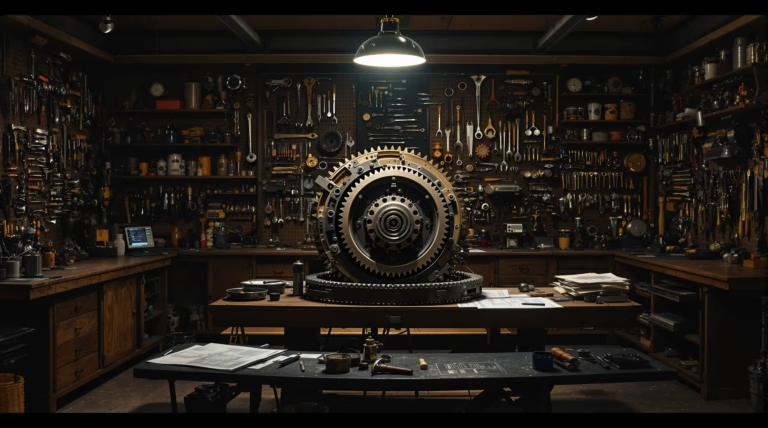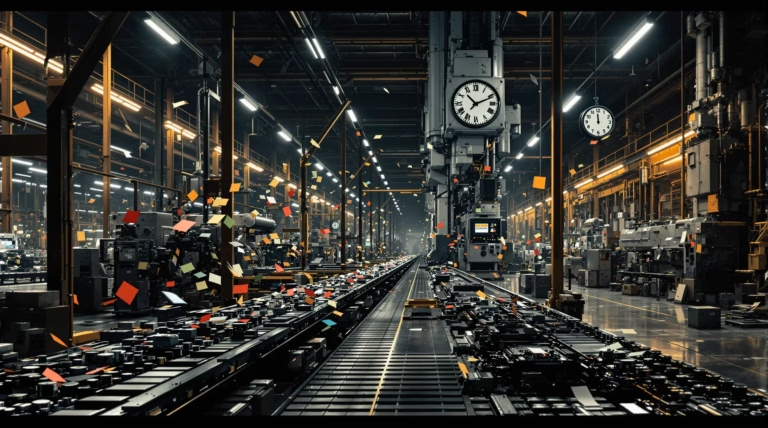Manufacturing Technician: Roles, Responsibilities, and Career Opportunities
Looking to understand the vital role of manufacturing technicians in modern production environments? These skilled professionals are essential for bridging the gap between design concepts and finished products, ensuring efficient and high-quality manufacturing processes. Let’s explore the comprehensive world of manufacturing technology and what it takes to succeed in this dynamic field.
Understanding the Role of a Manufacturing Technician
Manufacturing technicians serve as the backbone of production environments, overseeing and managing manufacturing processes in discrete manufacturing settings. These specialists transform individual parts and raw materials into distinct products through various non-chemical processes, ensuring production runs smoothly and efficiently.
Definition and Overview of a Manufacturing Technician
A manufacturing technician is a skilled professional who oversees production processes in manufacturing environments. These specialists work with various production methods including:
- Melting and casting operations
- Forging and milling processes
- Laser cutting and grinding
- Assembly line operations
- Quality control procedures
Key Responsibilities of a Manufacturing Technician
Manufacturing technicians perform diverse duties that directly impact production efficiency and product quality. Their primary responsibilities include:
- Setting up and operating production lines and machine tools
- Monitoring output quality and conducting regular inspections
- Performing routine equipment maintenance and adjustments
- Troubleshooting mechanical and operational problems
- Maintaining safety standards and regulatory compliance
- Contributing to process improvement initiatives
Essential Skills and Qualifications for Manufacturing Technicians
Success in manufacturing technology requires a unique combination of technical expertise and soft skills. These professionals must demonstrate both hands-on capabilities and analytical thinking to effectively manage production processes.
Technical Skills and Problem-Solving Abilities
| Skill Category | Required Competencies |
|---|---|
| Technical Skills | Mechanical aptitude, blueprint reading, precision measurement, computer literacy, PLC programming |
| Problem-Solving | Critical thinking, root cause analysis, troubleshooting methodology, preventive maintenance planning |
| Operational Skills | Equipment operation, quality control, safety procedures, process optimization |
Educational Requirements and Certifications
Entry-level positions typically require a high school diploma or GED, with many employers preferring candidates holding additional credentials:
- Associate degrees in manufacturing technology or related fields
- MSSC Certified Production Technician (CPT) designation
- National Institute for Metalworking Skills (NIMS) credentials
- Society of Manufacturing Engineers’ Certified Manufacturing Technologist (CMfgT)
- Specialized certifications in welding, CNC operation, or industrial robotics
Career Opportunities and Advancement for Manufacturing Technicians
Manufacturing technicians enjoy diverse career opportunities across multiple industrial sectors, with pathways leading to specialized and leadership positions. As manufacturing becomes increasingly automated and integrated, professionals must balance traditional mechanical expertise with digital systems knowledge. Those who embrace continuous learning and adapt to emerging technologies position themselves for significant career advancement.
Industries Employing Manufacturing Technicians
- Medtech and pharmaceutical manufacturing – focusing on compliance with strict quality standards
- Automotive industry – overseeing assembly lines and advanced manufacturing techniques
- Aerospace sector – specializing in precision component production
- Electronics manufacturing – working with automated systems for device production
- Defense contractors – maintaining specialized equipment and systems
- Consumer goods manufacturing – ensuring efficient production processes
Career Advancement Paths
| Career Path | Role Description |
|---|---|
| Supervisory Roles | Team leader, shift supervisor, production supervisor – managing teams while applying technical expertise |
| Technical Specialization | Process expert, equipment specialist, quality systems specialist |
| Engineering Positions | Manufacturing engineer, process improvement specialist, quality engineer |
| Training and Development | Technical trainer, process educator, equipment operation instructor |
| Management Track | Production manager, operations manager, technical operations director |
Impact of Technology on Manufacturing Technicians
The role of manufacturing technicians is evolving with the integration of smart manufacturing technologies. Modern technicians now manage:
- Digital interfaces and data analysis systems
- Industrial robots and collaborative robots (cobots)
- Automated guided vehicles (AGVs)
- Internet of Things (IoT) sensors and monitoring systems
- Augmented reality tools for maintenance
- Digital twin simulations for problem-solving
Salary, Job Outlook, and Safety Protocols
Manufacturing technicians command competitive compensation packages that reflect their technical expertise and responsibilities. The field offers strong growth potential, particularly for those who maintain versatile skill sets and embrace technological advancements. Success in this role requires unwavering commitment to safety protocols and risk management procedures, especially in specialized sectors like medtech and pharmaceutical manufacturing where precision and compliance are paramount.
Salary and Job Outlook for Manufacturing Technicians
| Experience Level | Annual Salary Range |
|---|---|
| Entry-level | $35,000 – $45,000 |
| Experienced/Specialized | $55,000 – $75,000+ |
Compensation varies based on geographic location, industry sector, technical specialization, and level of responsibility. Premium wages are particularly common in pharmaceuticals, aerospace, and specialized electronics manufacturing sectors.
The job market shows stability with positive growth projections in specific sectors. While automation has reduced some traditional roles, new opportunities have emerged in advanced manufacturing. The Bureau of Labor Statistics forecasts moderate growth through 2030, with the strongest prospects in industries adopting cutting-edge technologies.
- Enhanced job security through expertise in additive manufacturing
- Growing demand for industrial IoT systems specialists
- Increased opportunities in automated production environments
- Career advancement through continuous skill development
- Strong prospects in emerging manufacturing technologies
Importance of Safety Protocols in Manufacturing
Safety protocols serve as the foundation of efficient manufacturing operations, protecting both personnel and production quality. These comprehensive systems encompass multiple layers of protection and procedures.
- Physical machinery safeguards and protective equipment requirements
- Detailed protocols for hazardous material handling
- Lock-out/tag-out procedures for maintenance operations
- Daily safety checks and validation protocols
- Safety stock management for supply chain resilience
Manufacturing technicians actively maintain safety standards through daily inspections, proper equipment operation, and participation in safety committees. In regulated industries, particularly pharmaceutical and medical device manufacturing, stringent validation protocols ensure both worker safety and product integrity. Successful facilities integrate safety consciousness into their organizational culture, recognizing that safe operations directly correlate with improved efficiency and productivity.
Tips and Real-Life Experiences for Aspiring Manufacturing Technicians
Success in manufacturing requires a strategic combination of formal education and practical experience. Industry professionals emphasize the importance of developing both technical expertise and soft skills like communication and adaptability. Those who demonstrate continuous learning capabilities and adaptability position themselves advantageously for career growth in this evolving sector.
Gaining Relevant Experience and Skills
- Specialized manufacturing technology programs at community colleges and technical schools
- Certificate programs focusing on specific manufacturing skills
- Entry-level production operator positions for hands-on experience
- Cross-training opportunities and improvement projects participation
- OSHA safety training and machine operation certifications
- Proficiency development in manufacturing software and CAD programs
Practical experience proves essential for career advancement. Many successful professionals begin in production roles, gradually building expertise through hands-on work. Combining formal education with practical experience creates a solid foundation for a successful manufacturing career, particularly in today’s increasingly digitized industrial landscape.
Testimonials from Current Manufacturing Technicians
Michael Torres – Senior Manufacturing Technician, Medical Device Industry: “My journey began as a production line worker with just a high school diploma. I volunteered for every training opportunity and spent evenings earning my associate’s degree in manufacturing technology. What made the difference was my willingness to troubleshoot problems others avoided. Fifteen years later, I lead our automated production cell and mentor new technicians. My advice: master both mechanical and electronic systems—the intersection of these skills is where your value multiplies.”
- Started with high school diploma in entry-level position
- Pursued additional training and education proactively
- Focused on problem-solving challenging issues
- Advanced to leadership role in automated production
- Emphasizes importance of dual mechanical-electronic expertise
Rachel Liu – Aerospace Manufacturing Technician: “After completing my engineering technology degree, I was surprised by how much I still needed to learn on the job. The theoretical knowledge was important, but understanding how to apply it within our specific processes took time. The most valuable skill I’ve developed is the ability to communicate effectively between engineers and production staff—translating technical requirements into practical actions.”
- Highlights gap between theoretical education and practical application
- Emphasizes importance of process-specific knowledge
- Values communication skills between technical and production teams
- Recommends understanding systems’ design rationale
- Stresses importance of innovative thinking over maintenance







